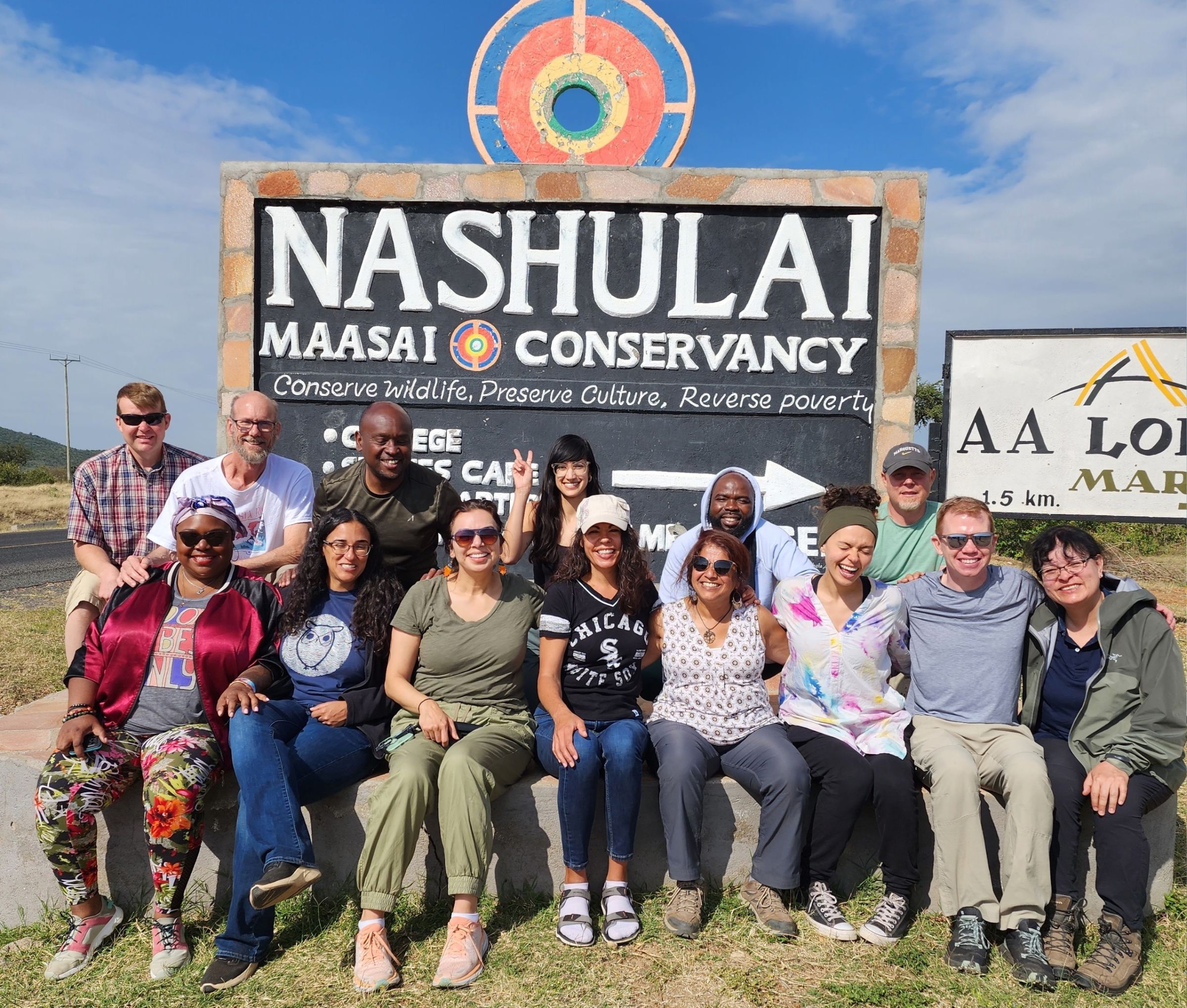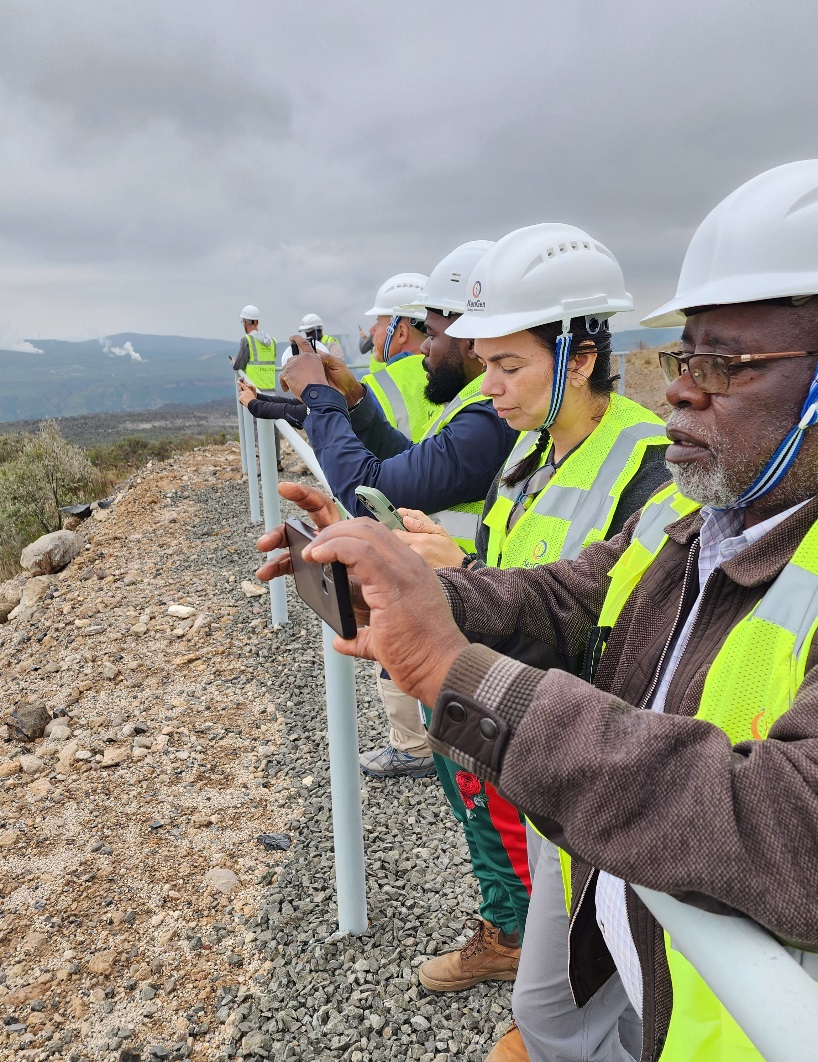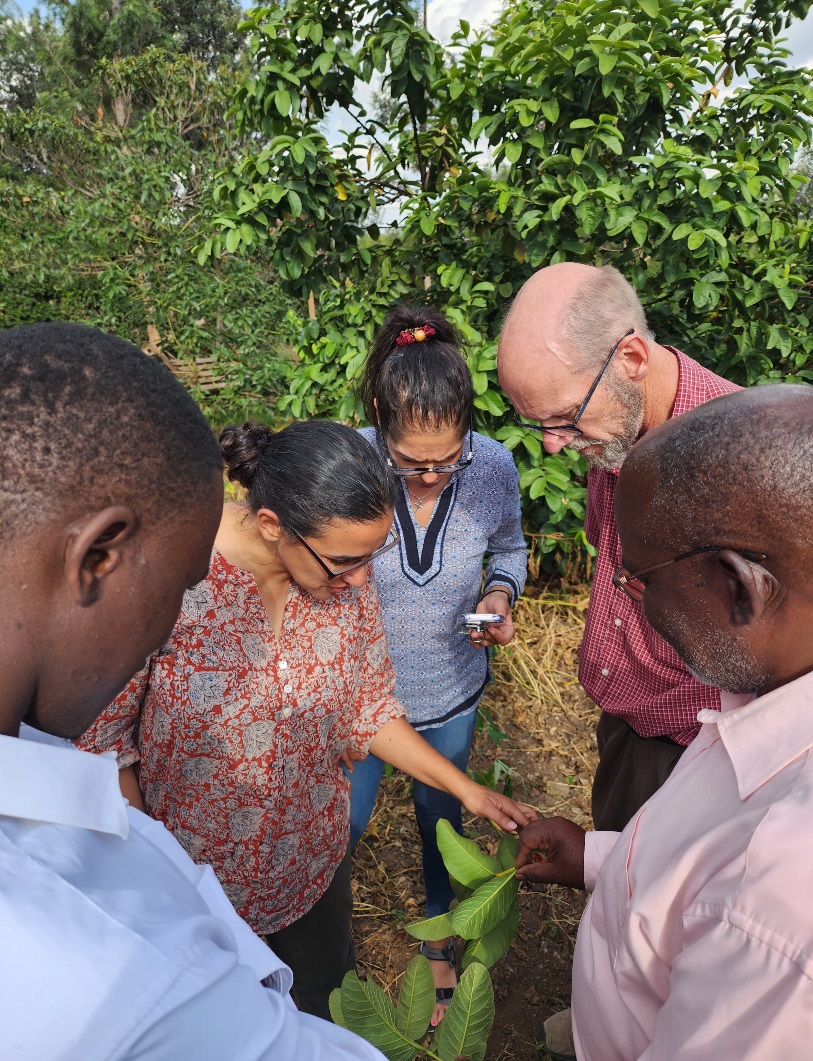
 While traveling to Kenya and Uganda earlier this year, Harper College’s Mukila Maitha
was thinking about the big picture.
While traveling to Kenya and Uganda earlier this year, Harper College’s Mukila Maitha
was thinking about the big picture.
“Human history in East Africa spans the entire length of hominid evolution,” explained the associate professor of geography. “It’s a unique place with a rich history, because it’s where humans first evolved and it’s been continuously inhabited until the present time.”
That’s part of the reason Maitha and English Professor Richard Johnson led a diverse group of 12 educators to Kenya and Uganda this summer for an enlightening field experience, Teaching Africa Today: Environmental and Sustainability Issues in Kenya and Uganda Through a Social Justice Lens, funded through the Fulbright-Hays Group Projects Abroad program.
“Africa is poorly understood in the United States,” said Maitha, who is originally from Kenya. “The historical state of people of African descent in the U.S., which includes slavery and its aftermath, has contributed to misperceptions of the continent.”
Johnson, who shares a deep connection to Africa through his Peace Corps service and research in Burkina Faso in the 1980s, noted that Harper is committed to providing faculty with immersive global education experiences through the college’s Global Regional Focus (GRF) Initiative.
GRF selects areas of the globe to feature for faculty development, student study abroad opportunities and cultural exchange. Africa, Central America and Asia have all been part of three-year regional focus efforts.
“We started around 2010 by bringing in outside experts to build a strategic plan, and that grew into a larger approach that has been nationally recognized,” said Johnson, who is the former director of Harper’s Office of International Education.
Harper’s GRF approach was awarded the 2018 NAFSA Senator Paul Simon Spotlight Award and the 2020 IIE Andrew Heiskell Award for Innovation in International Education.
For the Teaching Africa Today program, Harper College’s Office of International Education was one of just two U.S. community colleges awarded funding through a Fulbright-Hays Group Projects Abroad grant in 2022.
“My mantra has always been, if you want to graduate globally competent, interculturally competent students, you have to start with a globally competent, interculturally competent faculty,” Johnson said.
 The educators selected for Teaching Africa Today included instructors in statistics,
biology, music, social studies, philosophy, English, geography and engineering. They
teach fifth grade, seventh grade, high school and community college students.
The educators selected for Teaching Africa Today included instructors in statistics,
biology, music, social studies, philosophy, English, geography and engineering. They
teach fifth grade, seventh grade, high school and community college students.
The project focused on some of the most important concerns of our time.
“We saw this as an opportunity to create a program where the participants can learn about environmental challenges in East Africa and compare and contrast what is happening there with the United States to see the connections,” Maitha said.
The topic of social justice also provided participants with a chance to learn how East African countries, where about 140 languages are spoken, confront challenges related to diversity.
“This was an opportunity to look at an area of the world with quite stark inequalities and compare them to the U.S. to see where there are similarities and differences,” Johnson said.
The 18-month project began with 10 months of predeparture coursework to prepare for six weeks of cultural, academic and language immersion. Participants spent the academic year learning, including taking in presentations from faculty like Simon Onywere, associate professor of environmental planning and management at Kenyatta University in Kenya.
They studied the history, usage and vocabulary of Kiswahili, a language spoken by 80 million people, many of them in East Africa. Kenyatta University Senior Lecturer Miriam Osore met virtually with participants twice monthly for these lessons.
“The 10-month predeparture preparation was key to the success of the field experience,” Johnson explained. “Those cultural, history and language presentations were the foundation.”
Before leaving for Africa, participants proposed curriculum infusion projects that evolved as the experience progressed. This focused their time in the field on identifying lessons they could bring back to their classrooms to impact student learning.
 For six weeks in the summer of 2023, Kenyatta University in Kahawa, northeast of Nairobi,
the capital of Kenya, was home base for the Teaching Africa Today participants.
For six weeks in the summer of 2023, Kenyatta University in Kahawa, northeast of Nairobi,
the capital of Kenya, was home base for the Teaching Africa Today participants.
They visited sites around the country, including a wide variety of geographies and environments – from tundras to tropical oceans, cities to the countryside, corporate agriculture to small farms. They met with academics, government officials, businesspeople and Kenyans and Ugandans from all walks of life.
“It was a very busy itinerary, but I would still go to sleep at night thinking, ‘Wow, it's really wonderful, just how engaged our colleagues are,’ and happy that this was going to be so impactful for them professionally, and for their students,” Johnson said.
Participants are now completing curriculum projects, which will be freely shared online so they can be accessed by any educator in the world whose students could benefit from this enhanced learning.
Like ripples on the surface of a pond, each participant will go on to teach hundreds of students about what they learned in Africa. They will demonstrate the knowledge gained through first-hand experience and help important concepts come to life for their students.
In analyzing the impact of Harper College’s GRF, the Office of Institutional Research found that students who take courses led by faculty who have participated in GRF professional development programs stay in school and graduate at a rate 10% higher than other students.
“Harper students are gaining an international perspective across curricula through our approach,” Johnson said.
As GRF continues, Maitha will lead a study abroad program in Kenya for students in Harper’s Honors Program in March 2024. Ndere Cultural Troupe, the leading dance group in Uganda, will visit campus next semester for a performance and classroom visits. A formal partnership with Kenyatta University could be forthcoming, which would make international exchange between the two institutions simpler.
To learn more about global education at Harper College, visit the Office of International Education.